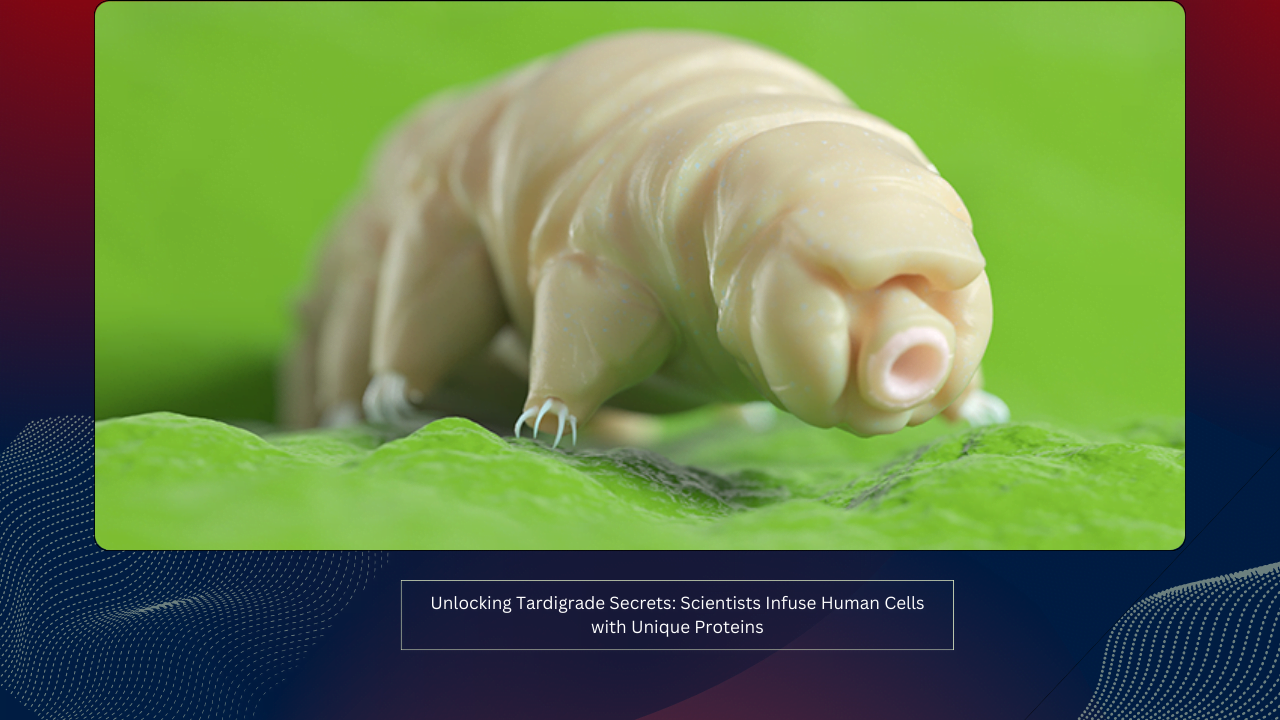
Unlocking Tardigrade Secrets: Scientists Infuse Human Cells with Unique Proteins
In a groundbreaking study, scientists explore the extraordinary survival abilities of tardigrades, resilient microorganisms known for enduring extreme conditions. By introducing key tardigrade proteins into human cells, researchers uncover insights into stress resilience, with potential applications for human health and biotechnology.
Tardigrades, also known as water bears, possess unparalleled resilience, capable of surviving freezing temperatures, scorching heat, intense radiation, and even the vacuum of space. Their remarkable survival skills have long intrigued scientists, prompting investigations into the molecular mechanisms underlying their extraordinary endurance.
A recent study led by researchers from the University of Wyoming sheds light on tardigrades’ unique survival strategies, particularly their ability to enter a state of metabolic suspension under harsh environmental conditions. The focus of the study was on a specific tardigrade protein known as CAHS D, which plays a crucial role in protecting against extreme desiccation (drying out).
Through meticulous experimentation, the research team demonstrated how CAHS D undergoes a transformative process, turning into a gel-like substance when exposed to stress. This gel formation serves as a shield, safeguarding cellular molecules and preserving vital biological functions in tardigrades during periods of environmental adversity.
The findings offer valuable insights into the mechanisms of biomolecular condensation employed by tardigrades to endure desiccation and other stressors. Moreover, they present exciting prospects for developing biotechnological applications aimed at inducing cellular stasis and enhancing storage and stability in various contexts.
One intriguing aspect is the potential transfer of tardigrade resilience to human cells. By introducing tardigrade proteins into human cellular environments, scientists observed a remarkable slowdown in metabolism, akin to the biostasis achieved by tardigrades. This phenomenon could have far-reaching implications for human health, including mitigating aging processes and improving the storage of biological materials, such as organs for transplantation.
Lead researcher Silvia Sanchez-Martinez highlights the significance of this discovery, emphasizing the possibility of conferring tardigrade-like resilience to human cells. The ability to induce biostasis in human cells opens up new avenues for medical treatments and biotechnological advancements, offering hope for improved health outcomes and enhanced therapeutic interventions.
While practical applications are still in early stages, the promising results pave the way for future research. From stabilizing blood products to revolutionizing organ preservation techniques, the potential uses of tardigrade proteins in biomedical settings are vast and varied.
As scientists delve deeper, the prospect of harnessing tardigrade resilience for human benefit grows closer. With continued research, we may soon unlock the full potential of these resilient microorganisms, ushering in a new era of biotechnological advancement and medical breakthroughs.

